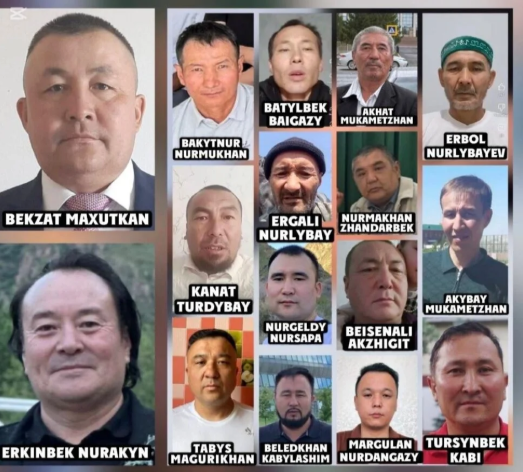Japan: Lawyers, Deprogramming, and the Unification Church Dissolution Case. 7.
- info775148
- 18. 6.
- Minut čtení: 4
June 18, 2024
Deprogramming and its use as a weapon to destroy the Unification Church were done with the support of Japanese magistrates. Not only has the anti-cult lawyers’ participation in the illegal activities of confinement and illegal de-conversion of Unification Church followers not received disciplinary sanctions from the Bar association, but the Japanese courts have endorsed them during the civil court trials that the government relied on to dissolve the religious corporation.
In the first youth return case before the Sapporo District Court mentioned above, at least sixteen of the twenty plaintiffs, who complained of the Church’s “evangelistic activities” and an alleged infringement of their free will, had been confined and forcefully de-converted per the Court’s findings (maybe all twenty of them had been so mistreated).
Despite the defense lawyer’s plea that their testimonies were unreliable, the Sapporo District Court found torts in their favor, without answering the defense argument. On appeal, the Sapporo High Court almost followed this decision but gave a specific answer about the deprogramming.
The High Court ruling (on page 24) referred to the abduction and confinement as follows: “The appellant argues that the fact that many of the appellees abandoned their faith due to means such as restraint of physical liberty constitutes a serious issue, and that a judgment that ignores this fact violates the fairness and impartiality of the judiciary. As recognized above, all of the appellees are individuals who withdrew (abandoned their faith) from the appellant’s organization, and many of them were subjected to restraint of physical liberty by their relatives during the process leading up to their withdrawal. Such restraint may be illegal in itself (i.e., not permissible as a justifiable act) depending on the relationship between the person who engaged in the conduct and the appellee [plaintiff] in question.
However, this is merely a matter between those who committed such acts and the respective appellees and should be dealt with separately as necessary. The existence of such circumstances has no bearing on the appellant’s [defendant, the Church] responsibility toward the appellees (if anything, it can be said to have brought such responsibility to an end). Therefore, the failure to consider the circumstances leading up to the withdrawal, as claimed by the appellant, does not render the judgment contrary to judicial fairness and impartiality, and the appellant’s argument is without merit.”
Therefore, the fact that the plaintiffs sued the Church under coercion and the threat of being confined again was not considered.
Actually, the Court went further when it stated that “if anything, it can be said to have brought such responsibility to an end,” meaning that at least the deprogramming ended the Church’s “brainwashing” and the tort committed against the plaintiffs.
By relegating this matter to the private domain and voluntarily ignoring the violence exerted on the plaintiffs, and the State’s responsibility in what should be considered a public order issue, the Court endorsed this activity.
The thirty-two cases relied upon by the government to request the dissolution of the Church were brought, in the majority, by deprogrammed members. In all these fabricated cases, the Courts never drew any conclusions from their findings about the plaintiffs’ confinement and forced de-conversion.
Apart from the violation of the duty of impartiality of magistrates and the right to a fair trial, all this entails the State’s liability for violation of the right to freedom of religion or belief under the International Covenant on Civil and Political Rights that Japan has signed and ratified, in particular its Article 18.2: “2. No one shall be subject to coercion which would impair his freedom to have or to adopt a religion or belief of his choice.”
It is based on this obligation of Japan that the UN Human Rights Committee took up the matter during its review of Japan in 2013 and included the following recommendation in its Concluding Observations on 20 August 2014: “Abduction and forced de-conversion “21.
The Committee is concerned at reports of abductions and forced confinement of converts to new religious movements by members of their families in an effort to de-convert them (arts. 2, 9, 18, 26). The State party should take effective measures to guarantee the right of every person not to be subject to coercion that would impair his or her freedom to have or to adopt a religion or belief.”
A few months later on 14 November 2014, for the first time, a victim of such misdeeds, Toru Goto, was awarded substantial damages in a civil case against his family and two deprogrammers by the Tokyo High Court for the twelve year-illegal confinement and forced persuasion he was subjected to in a failed attempt to have him recant his faith. The Court granted him compensation commensurate with the harm suffered and ruled that the deprogramming itself, performed by Pastor Yasutomo Matsunaga, was illegal; a decision confirmed in 2015 by the Supreme Court of Japan.
Even if this “deprogramming” practice seemingly ended thereafter, the court cases that were built on it are now used to achieve the dissolution of the Church and bring about its destruction per the original plan of the Network’s lawyers, who were never held liable for their participation in a criminal enterprise.
If the decision to dissolve is upheld on appeal, there is a risk that the accusation of the Unification Church being a criminal organization and the stigmatization of its members as criminals will see a new surge, leading to the resurgence of such barbaric practices.
Source: bitterwinter.org












Komentáře